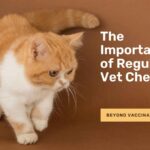 Many dogs and cats already show signs of dental disease by the age of three.
Many dogs and cats already show signs of dental disease by the age of three.
Unfortunately, the signs are not readily evident until it has progressed and caused extensive damage. You may think that your pet’s bad breath is normal when, in fact, it could be the first sign of dental problems.
Periodontal disease is an inflammatory disease caused by the bacteria in plaque that spreads beneath the gumline damaging the jawbone and connective tissue that support the teeth. Appearing red and swollen, the gums and teeth become infected and very painful for your pet leading to trouble chewing and eating and eventually resulting in tooth loss or extraction of teeth.
As a preventative measure, your pet’s teeth should be evaluated and cleaned at least once a year by their veterinarian.
However, if your pup or kitty exhibits any of the following symptoms or behaviors, it could be a sign of mouth pain or tooth issues. Make an appointment with the vet as soon as possible to have your pet examined.
- Bad breath – Cats and dogs should not naturally have constant bad breath.
- Discolored teeth or teeth covered in tartar.
- Drooling, trouble chewing hard food, or dropping food from the mouth when eating.
- Reduced appetite, refusing to eat, and/or weight loss.
- Swelling or bleeding in or around the mouth.
- Sensitivity to touch around the mouth, nose, or eyes.
Dental hygiene in pets is crucial to their overall health and well-being.
As the disease progresses, not only is the mouth affected, but the infection can travel through the bloodstream and eventually affect vital organs leading to possible kidney, heart, or liver disease.
In extreme cases where there is inflammation, bleeding, infection, and bone loss your pet may require extensive dental work to make his or her mouth healthy again. Your veterinarian will offer treatment options available that are best for your pet.
You can contribute to your dog’s or cat’s dental health by brushing their teeth daily or at least 2 to 3 times per week. This is not always easy to accomplish and it takes a lot of patience and training. Your vet can also recommend quality dental chews for your dog and special treats for your cat that can help fight tartar.





